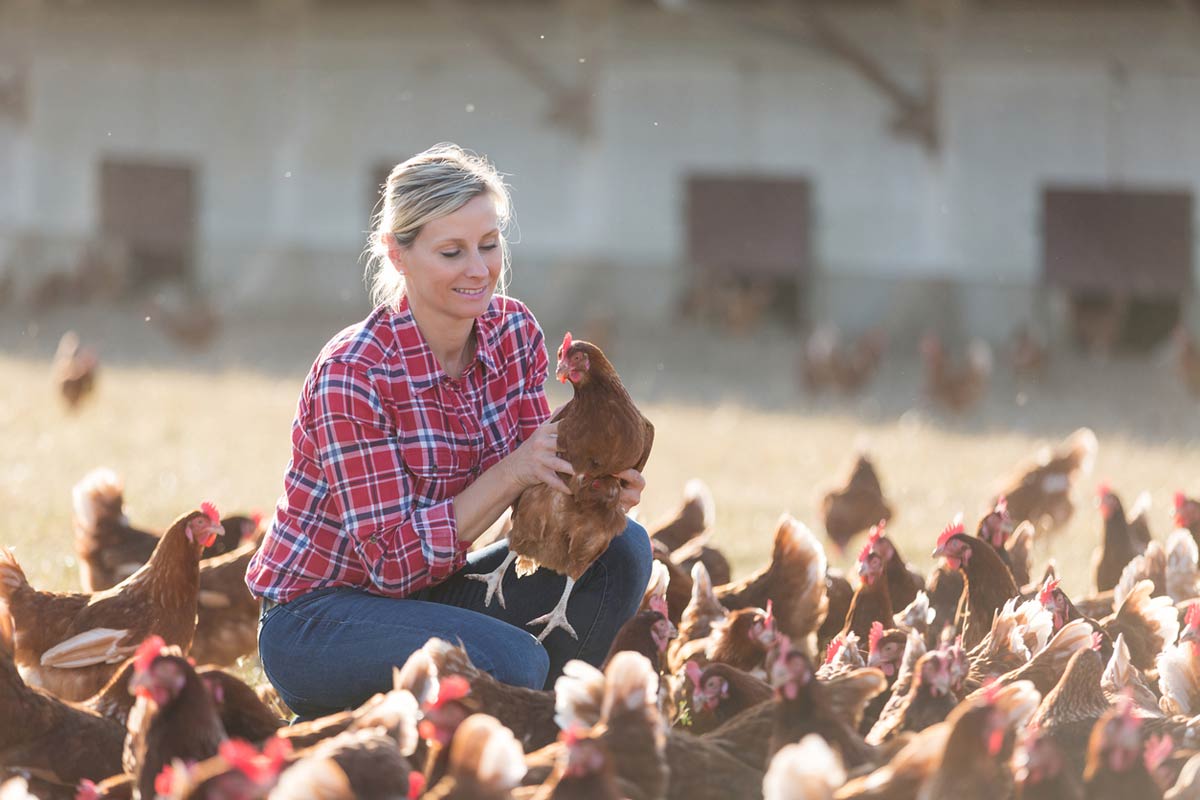As winter approaches, I find myself wondering if I should heat my chicken coop as the weather turns cold. Most experts say that it’s not necessary since a chicken’s body temperature is almost ten degrees warmer than ours and they well equipped to handle cold temperatures.
However, if you have a breed that doesn’t handle the cold well or if you experience extreme conditions, the you may want to buy a chicken coop heater. Just remember that you don’t want to warm up the coop like it’s the inside of your home.
A chicken may handle cold weather well, but keeping the coop at 70 degrees inside may be worse than not heating it at all. The transition from a warm coop to a cold outdoor run may exceed their ability to regulate their own body temperature.
The right kind of heater can help warm up your birds without the risk of fires or drastic temperature differences from the outdoors. These devices are much more convenient and safer as opposed to traditional heating methods.
Types of Chicken Coop Heaters
Unless you want your feathery friends to suffer from frostbite, buying a chicken coop heater to get a suitable temperature and make sure your chickens stay warm is a must. Stay away from heat lamps and space heaters. They will create too much heat and may be unsafe in coops.
Searching the market for the best heater may baffle you due to the number on offer. However, all heaters can be majorly classified into the following five types:
Flat Panel Heater


A flat panel heater is an excellent choice as chicken coop heater because it allows your hens to sit on it if they feel cold, but it won’t radiate enough heat to make the coop overly warm.
Pros:
- Safe– When it comes to a chicken coop, flat panels can be the best option since they use household electrical power and usually have safety features to prevent overheating.
- Affordable–They are quite affordable as well because they’re easily available on the market.
- Easy to install – Moreover, they are easy to install as they can be mounted anywhere. You can hang them on a wall or leave them standing.
- Less Energy – Flat panel heaters tend to use less energy than other heaters.
- Comfort– The biggest pro is that they do not heat the entire coop. Instead, they will only heat the area near them, creating a thermal spectrum. This makes it easier for your hens to figure out their own comfort. If it gets too hot for them, they can simply move away to a cooler area.
Cons:
- Overheating – Cheap, inferior products may not have the proper safety features to prevent overheating.
- Small Heating Area – Another major con is that they can heat a small area only. You might need to buy a couple of flat panel heaters if you have a larger coop.
Infrared Heater


An infrared heater or heat lamp is another safe option that can provide heating indoors without the risk of fire.
Pros:
- Extreme Cold temperatures – They greatly eliminate the need for any insulation. Most other heaters might not be able to operate properly in colder temperatures. In contrast, an infrared heater will keep you coop warm and cozy even in extremely cold temperatures.
- Quick Heat Up – They will heat the coop up quickly since they do not use air to transfer the heat.
- No Dirt or Dust – Yet another advantage is that they do not kick up dirt or dust as they do not blow out air or steam.
- Portable – Furthermore, they tend to be small and extremely portable. However, you can find some larger versions in the market as well.
Cons:
- Expensive – They tend to be costly initially.
- Smaller Heating Area: You can buy a larger unit or buy them in greater numbers if you need to heat a larger area to get a suitable temperature.
Oil Filled Radiator


Another safe option for a large chicken coop heater is the oil filled radiator. They are filled with oil which is then heated up using electricity to create the right temperature quickly.
This is not a good option for a small coop since it can build up too much heat leading to excessive differences without outside conditions.
Pros:
- No Insulation Required – They provide an effective means of heat in non-insulated areas so you can operate them in the coldest of temperatures.
- Low Cost – The initial cost of these heaters is quite reasonable.
Cons:
- Small Heating Area – They also only operate in smaller areas.
- Expensive to operate – They tend to be expensive to operate in the long run. This is because they take a long time to heat up. As a result, more power may be needed to operate them.
- Harder to Clean – In addition, the design makes them harder to clean due to make cracks and crevices.
Brooding Plates
Brooding plates are used to brood chicks and provide them with heat in the winter season. Additionally, there is a large variety of brooder plates to choose from. They work similar to the flat panel heaters and so share the same pros and cons.
When installing brooding plates, ensure that the area is large enough to provide sufficient heat for the chicks.
Brooder Lamp
A brooder lamp is simply a light bulb that provides heat to the coops in the winter. However, due to the fact that they can start fires, they have declined in popularity. In all honesty, they have more cons than pros.
A room filled with straw and feathers is bound to heat up too much. They are known to start fires, especially if they fall from their mounts, which happens quite often. If you have to use them, then make sure to fasten them properly and use a metal cage around them. Otherwise, it will be one big unhappy ending for your beloved birds.
How to Choose a Chicken Coop Heater
Choosing a heater can be a tiring decision; however, there are a few factors you should keep in mind. These include:
- Safety – The number factor is undoubtedly safety! Ensure that the heating method you use is free of any fire hazards. This immediately eliminates the brooding lamp option.
- Cost – Next, consider whether you’re willing to pay more now or later! Some options might be expensive but they will last longer. They might use less power or be more durable, while others may be affordable but will consume more power which adds up on the maintenance costs.
- Size – If your coop is too big, you might need to either add more heating elements or buy one at a bigger size as it won’t be effective when it is freezing outside and ventilation and moisture may also become a problem. At the same time, if the heating element is too big, you might end up overheating the coop.
- Insulation – Some heating options might need you to insulate the coop with other methods. This is because these units cannot work at extremely cold temperatures. Opt for ones that do not have such a limitation. Ifyou live in areas that only get mildly cold, however, then go for the cheapest option regardless of insulation.
Bottom Line
A chicken coop heater can be your chicks’ best friend during the cold season. Just remember to buy the best and safest option on the market. It will not only keep your chickens warm and cozy but will help you sleep easier without any worries!

